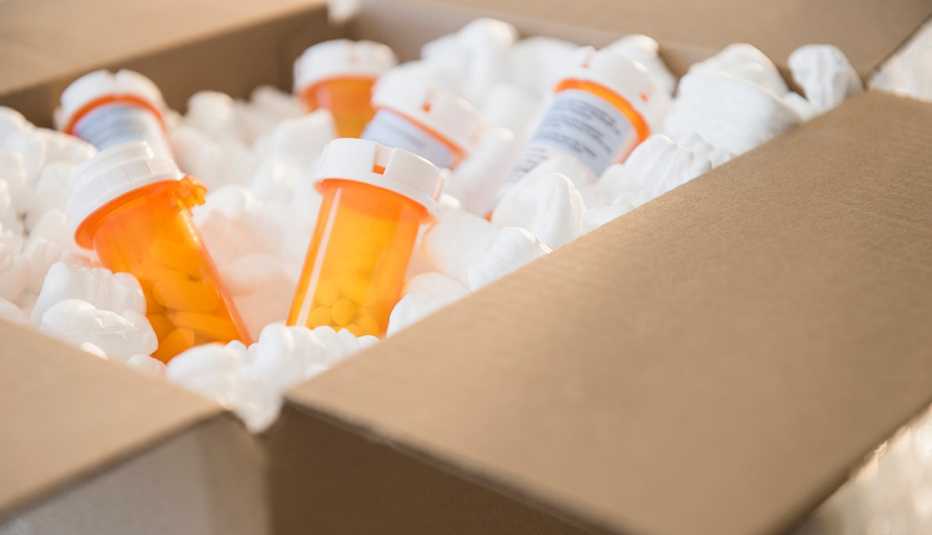Staying Fit


Should I stock up on my prescription medicines during the coronavirus outbreak?
Yes, if you can. The Centers for Disease Control and Prevention (CDC) guidelines suggest keeping a “two-week supply of prescription and over-the-counter medication.”


AARP Membership— $12 for your first year when you sign up for Automatic Renewal
Get instant access to members-only products and hundreds of discounts, a free second membership, and a subscription to AARP the Magazine.
Adm. Brett P. Giroir, M.D., assistant secretary for health at the U.S. Department of Health and Human Services (HHS), discouraged excessive stockpiling of medications but recommended having a healthy supply. “Make sure you have, if you can, a good month or more of medications — a couple of months — to keep you out of the doctor's office,” he said during an AARP Coronavirus Information Tele-Town Hall.
Officials have noted that it's also important to stock up on, but not hoard, over-the-counter medications to treat fever, cough and other symptoms, as well as tissues and common medical supplies.
What should I do if my pharmacy says I can't get more than my usual supply or refill my prescription early?
If you want a reserve of prescription medication, start by talking with your health care provider. It's possible that they could bump up your prescription from, say, a 30-day to a 90-day supply — one of the many provisions of the CARES Act, which was supported by AARP. One roadblock may be your health insurance, since many plans won't cover more than a month's worth of meds. Because these are extraordinary times, however, some major health insurers have pledged to relax prescription-refill limits on “maintenance medications.” Such limits are also being waived for many Medicare Advantage and Part D beneficiaries.
If you want to refill your medication before the set date, call your health plan and explain your situation. The insurer may be able to type in a code to alert the pharmacist that an early refill has been approved. (Note, however, that early refills often are not available for controlled substances.)
If your insurer denies your first refill request, don't be afraid to push back and advocate for yourself, given the CDC and HHS recommendations.

































































More From AARP
No Medical Evidence That Ibuprofen Makes Coronavirus Worse
Experts say it's still safe to use NSAIDs if you have a feverCOVID-19 Checklist for Older Adults: Prepare for Coronavirus
Tips from the CDC to get ready for an outbreak in your community
Coronavirus and Older Adults: Your Questions Answered
A CDC official explains why more risk comes with age from COVID-19